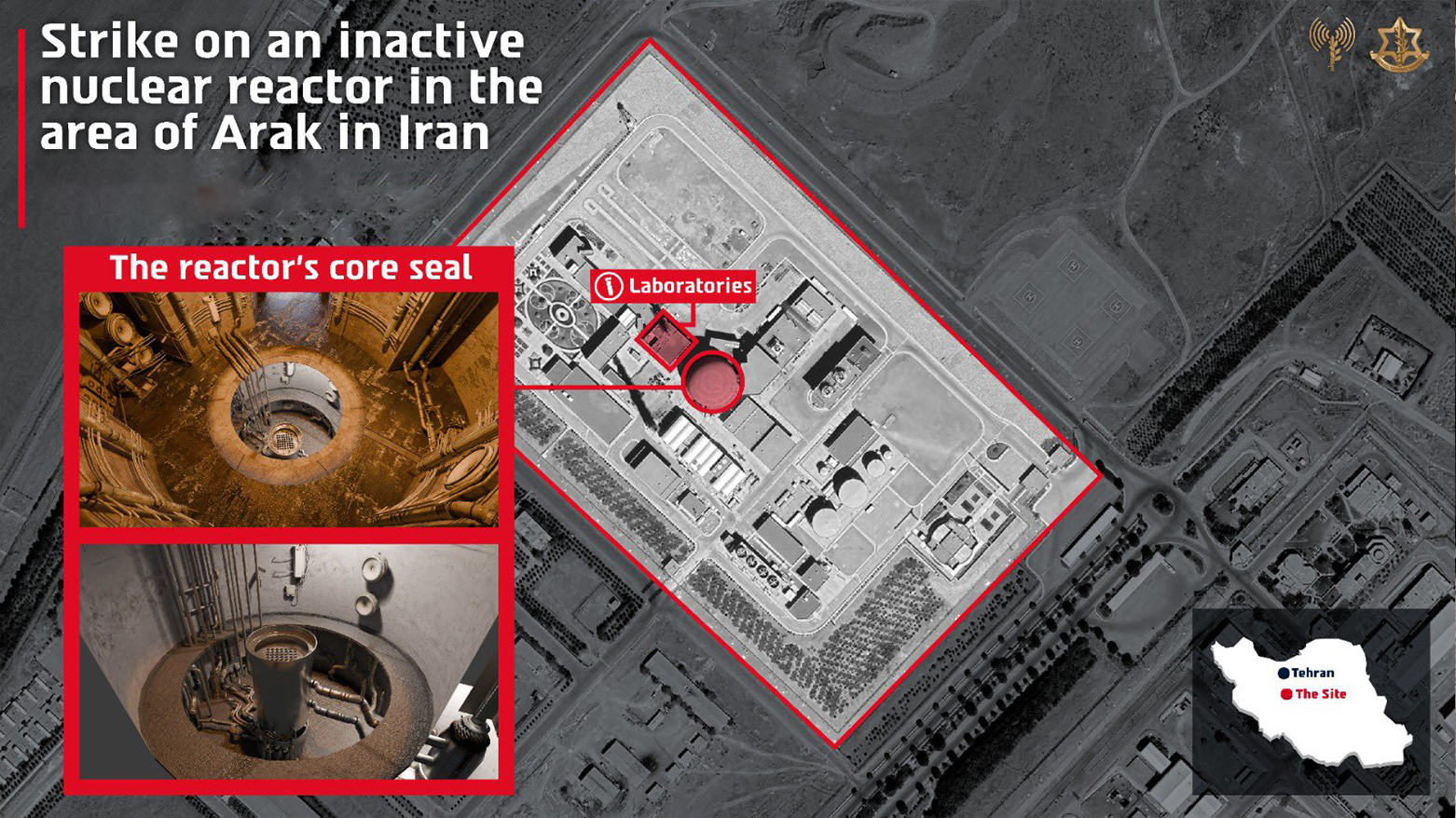Iran Accuses Israel of Striking Medical Nuclear Site in Arak as Air Raids Expand to Shiraz
Israel strikes Iran's Arak medical reactor, hits southern sites. Iran condemns attack on 'health facility' as conflict widens to Bandar Abbas, Shiraz.

ERBIL (Kurdistan24) – Iran’s Atomic Energy Organization on Saturday condemned Israel’s recent airstrike on the Arak heavy-water reactor, asserting that the facility was used solely for medical and health-related purposes. The statement came as Israeli warplanes expanded their air campaign to southern Iran, striking Shiraz and coastal areas near the strategic Strait of Hormuz.
“The Arak heavy-water facility is used for producing medical isotopes and supporting radiation-based treatments,” said Mohammad Eslami, head of the Atomic Energy Organization of Iran. “You [Israel] are targeting an active medical research center that contributes to healthcare and medicine,” he added.
The strike on Arak earlier in the week has added to growing concerns over the scope of Israel’s air campaign, which began on June 13 and has since become the largest direct confrontation between the two arch-rivals in decades.
Air Defenses Activated in Shiraz and Bandar Abbas
According to Iranian media, Israeli fighter jets launched new attacks Saturday on Shiraz, a key military hub in southern Iran. The semi-official Mehr News Agency reported that “air defense systems were activated in various parts of Shiraz in response to hostile Zionist aircraft.”
The Israeli military, in a brief statement, confirmed that its forces were “currently striking drone storage facilities and weapons sites in the Bandar Abbas region.” Located along the Strait of Hormuz, Bandar Abbas is home to significant military infrastructure and strategic assets.
Meanwhile, Iranian state-affiliated Tasnim News Agency reported that air defenses were also deployed over the southern port cities of Bandar Lengeh and Bandar Abbas after Israeli aircraft were detected in the area.
Sustained Conflict Enters Second Week
The military confrontation, now entering its second week, has seen Israel carry out waves of airstrikes targeting nuclear facilities, weapons depots, and senior IRGC personnel across central, western, and now southern Iran. In retaliation, Tehran has launched ballistic missiles and drone salvos at multiple Israeli cities, including direct hits on residential complexes, a hospital, and an oil refinery.
Israel has justified the unprecedented campaign by citing intelligence assessments suggesting that Iran’s nuclear program is nearing what Israeli officials have called “the point of no return.” In response, Iran has vowed to continue its retaliatory strikes.
As the conflict intensifies, the United States — Israel’s primary ally — continues to weigh its military options, amid rising fears of a broader regional war.
